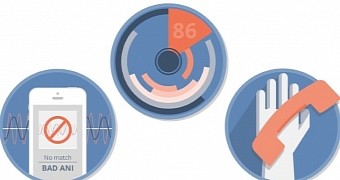Relying on voice biometrics to identify a potential fraudster is not a new technique, but now it appears that financial institutions adopted it to create blacklists of individuals trying to gain access to the customer’s bank account.
At the Black Hat security conference this year, Pindrop Security CEO and CTO Vijay Balasubramaniyan held a presentation about the benefits of detecting acoustical anomalies in a call to a bank’s call center.
Pindrop Security is a company that offers services to prevent fraud over the phone by analyzing deviations of the sound in a call from fraudsters. Balasubramaniyan said that the technology recorded a false positive rate of less than 2% and was successful in more than 80% of the cases.
Major banks like JP Morgan Chase and Wells Fargo rely on voiceprinting to detect bad guys impersonating the true owner of the account in a call to the support center. The input is taken from recorded phone conversations between the customers and the bank.
The organizations create blacklists of individuals on a reconnaissance mission, a tactic employed for gathering intelligence that leads to compromising the targeted account.
Reconnaissance missions generally take longer to reach the final goal, and this helps banks identify fraud attempts and take the necessary measures to prevent financial damage.
Gary Davis from McAfee says that the method proves “to be astoundingly effective at countering con artists” and that biometric blacklists could become common in the future.

 14 DAY TRIAL //
14 DAY TRIAL //